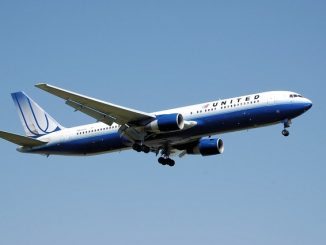To err is human; to err when your decision affects the safety of thousands of travelers is deeply unfortunate. But to make such an error and refuse to correct it puts you in a club no one should want to join.
The latest inductee is John Pistole, the administrator of the Transportation Security Administration. The TSA recently announced that it would change its list of prohibited carry-on items as of April 25. Among the newly allowed items: certain small knives.
The new policy is a mistake. This is not in doubt, given that virtually everyone in the industry who has commented on it is aghast, including three major U.S. airlines, flight attendants’ unions, federal air marshals and many pilots. Politicians, insurers, flight crews, and even some TSA inspectors say the policy is wrong. It probably will not save appreciable time. It will certainly compromise safety in the skies. Yet Pistole is apparently among the tiny minority who either cannot or will not see this.
The reason for his nearsightedness is that he has defined his agency’s mission too narrowly. He told ABC News, “We are trying to focus more on terrorist intent,” here meaning liquid and improvised explosive devices. Pistole wants to keep airliners from being blown up, which is a very good idea. But he does not see it as his job, or his agency’s, to be concerned about what will happen if someone on board takes a knife to a passenger or crew member.
That’s not the definition of “transportation security” that most Americans hold. It certainly is not the reason millions of us willingly put up with the inconveniences of extensive security checks every time we fly.
Like many able-bodied members of the public, especially those of us who fly often, I decided long ago that I would try to assist a flight crew if one or more passengers threatened the safety of a plane. There have been a number of instances, including 2009’s attempted “underwear bombing” and 2001’s aborted “shoe bombing,” in which airline passengers did exactly this.
But what happens when someone puts a knife against the throat of a flight attendant, or an elderly passenger, or a child? Will the flight crew resist when that person or one of his accomplices demands entry to the locked cockpit door? Will the pilots proceed to a landing at the nearest suitable airfield, which could be many minutes or even hours away, while hostages are threatened or executed? How do I help anyone in that situation, short of getting hostage negotiator training before I go to the airport?
The situation is not hard to imagine for flight crews or for airline passengers. Nor for the TSA, it seems, as razors and box-cutters are still prohibited in carry-on luggage.
It’s not so bad, in itself, that Pistole made a mistake. His refusal to correct or even reconsider it, however, is much more serious. It shows he does not have the mental flexibility or leadership skills for a job that requires the confidence of both the industry and the public.
This policy brouhaha is Pistole’s Michael Brown moment. Brown, famously dubbed “Brownie” by then-president George W. Bush, was the director of the Federal Emergency Management Agency when Hurricane Katrina hit in 2005, and he faced intense criticism from many quarters over his missteps in the storm’s aftermath. Brownie did not hold his job very long after his mistakes. Neither should Pistole.
In the meantime, legislators are looking to step in to repair the damage. Rep. Ed Markey, D-Mass., introduced a bill that would prohibit passengers from carrying knifes on planes, even as Pistole has continued to hold fast to his agency’s decision.
So far, the White House has been strangely silent during all this. This silence looks terrible given that the First Family habitually travels on Air Force One, where ordinary TSA rules do not apply. The president does not have to put his wife on a commercial airliner, as I will on Monday. He doesn’t have to put his daughters on such flights, as I do regularly. I don’t want them riding on aircraft where passengers are pointlessly free to carry knives, and I can’t imagine the president would want that for his family either.
Pistole has to go, and I am pretty sure his days are numbered. His ill-considered, irrationally justified policy change won’t last either. It is just a matter of time before both make their well-deserved exits from the public stage.





Leave a Reply